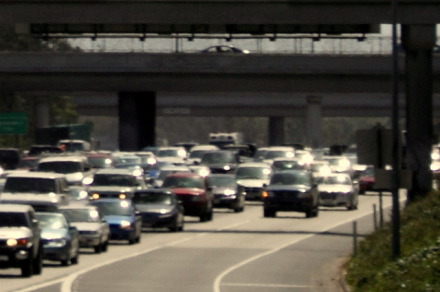
I am writing this column sitting in a traffic jam in Dhaka, the car-crammed capital city of Bangladesh. There’s an energy and an excitement here. The economy is growing at a rate European societies can only dream of, business expands beyond the old staples of garment manufacturing and agriculture, and culture and the arts thrive. Bangladesh wants to be a middle income country by its 50th birthday. It may just get there. If, that is, the traffic gets moving.
Dhaka has the worst traffic in the world. Two hour long commutes are common. A friend coming to dinner last night took three hours to travel eight miles. The traffic crisis is fuelled by the massive growth in the population of Dhaka, as people are drawn to the city’s booming economy. But the problem isn’t one of space and numbers, there is enough room here for everyone who’s moving. The crisis is in how we think about politics.
I’m writing about traffic in Dhaka to an audience of British Labour activists because the issue, and the way it is tackled, captures perfectly the argument about politics I’ve been writing about in this column. We think politics is about money or concrete, not people. We believe politics is about building schools and hospitals, roads and railways; changing the way taxes work; spending more money on this and less on that that. But all that should only be a small part.
As I argue in my academic work, our model of government is mechanistic and inhuman. But our problems are human, and social, they come from the broken way people act together. It’s about the aggregation of peoples’ decisions. Which needs a combination of bottom-up campaigns and political leadership to change.
Take this traffic jam. It’s a jam made up of big cars with one or two people in them each. It’s caused by the rise of car ownership amongst Dhaka’s middle classes, and the fact labour costs are low enough for people to afford to pay drivers. Everyone complains about every government (this one as well as the last) failure to build a mass transit system, blaming their corruption and competence. But that’s largely missing the point: all that is needed for traffic to improve is for people to get out of cars into buses or onto bikes.
The solution is simple to imagine but difficult to make happen. Here, specifically, it needs three things.
First, there need to be better bus services, currently blocked by the corrupt relationship between the existing bus owners and political parties. That links needs to be broken.
Second, car ownership is fuelled by a sense of insecurity. People need to feel safer on the streets and in public transport. That needs better police, interested in protection not just taking bribes. If that doesn’t happen, you could imagine some kind of community-based security service, or guards paid for by bus companies at bus stops and on buses.
Finally though, there needs to be a change of heart by Dhaka’s commuters. The status car-driving gives needs to be challenged. Private interests have to be linked up with the public good. Right now, sitting in this car, I am as much part of the problem as I am its victim. We don’t see that because we don’t recognise the possibility of change.
All this can be done without a single digger hitting the soil. It would happen best if Dhaka’s elected politicians stepped forward and did what they needed to: challenged the bus companies, improved the police, led a campaign to get drivers onto public transport. But the task of politicians is not to pull levers but lead, cajole, persuade, inspire: to use their soft power to make something which now seems impossible happen. Because, ultimately, it won’t be the Prime Minister of Mayor of Dhaka who will improve the city, but citizens changing what they do.
In Dhaka, this kind of political leadership is unlikely to emerge soon, sadly. Change will be driven from outside organised political parties; one could imagine a citizens’ movement making the kinds of actions I’ve proposed happen. That’s how dictatorships have been brought down in the past. Without support from the state or parties, change will be harder – but it’s still possible.
Much of this applies to Britain, too. Our economic problems come from the broken business models of too many of our businesses (low skill and low pay), and the poor coordination within sectors and cities. Social issues come from disconnection and alienation, from the collapse of institutional support for the poorest and those working hard for not enough pay. These aren’t questions that have technocratic solutions. They rely on the way people are coordinated, on politics in the very broadest sense.
Here, as in Britain, people oscillate between resignation and rage about the failure of politics. My argument is that disaffection is because we – the public as well as politicians – have a limited and wrong-headed idea about what politics is. When the ten year old son of my host in Dhaka read this article he said ‘I didn’t know traffic had anything to do with politics’. Somehow, that has to change.




More from LabourList
‘The High Court judgment brings more uncertainty for the trans community’
‘There are good and bad businesses. Labour needs to be able to explain the difference’
‘This ruling should now remove any remaining barrier to approval of EHRC code’